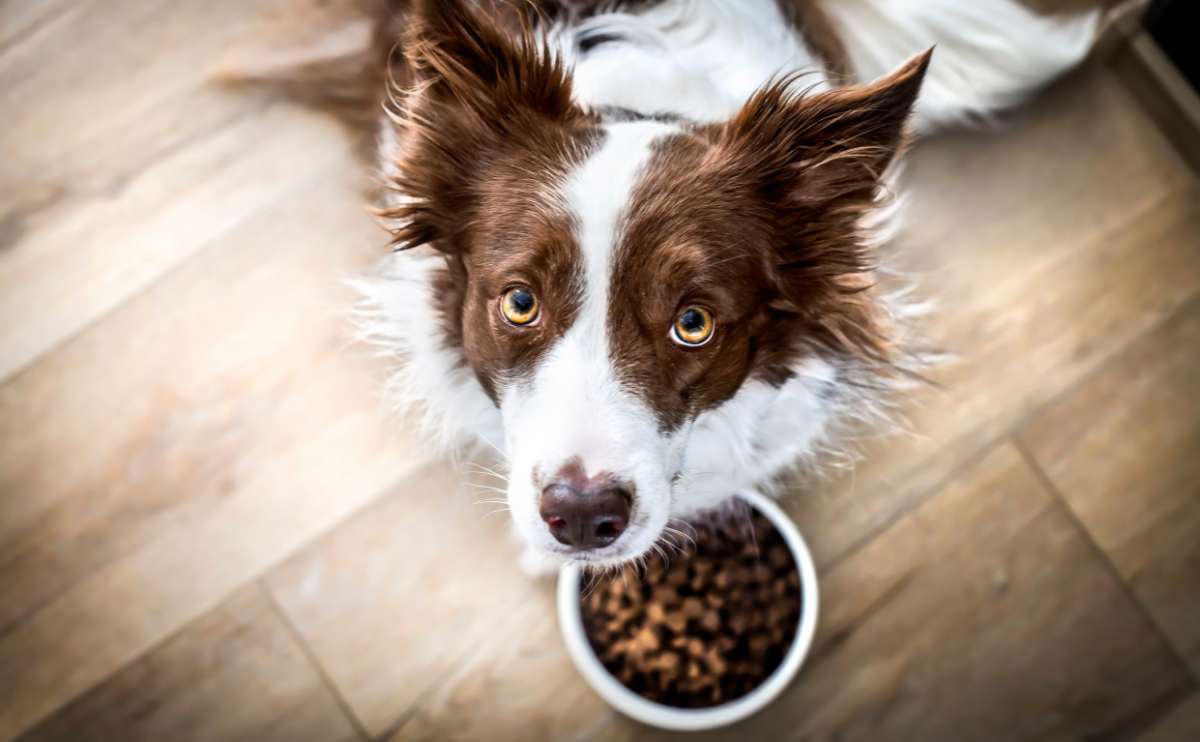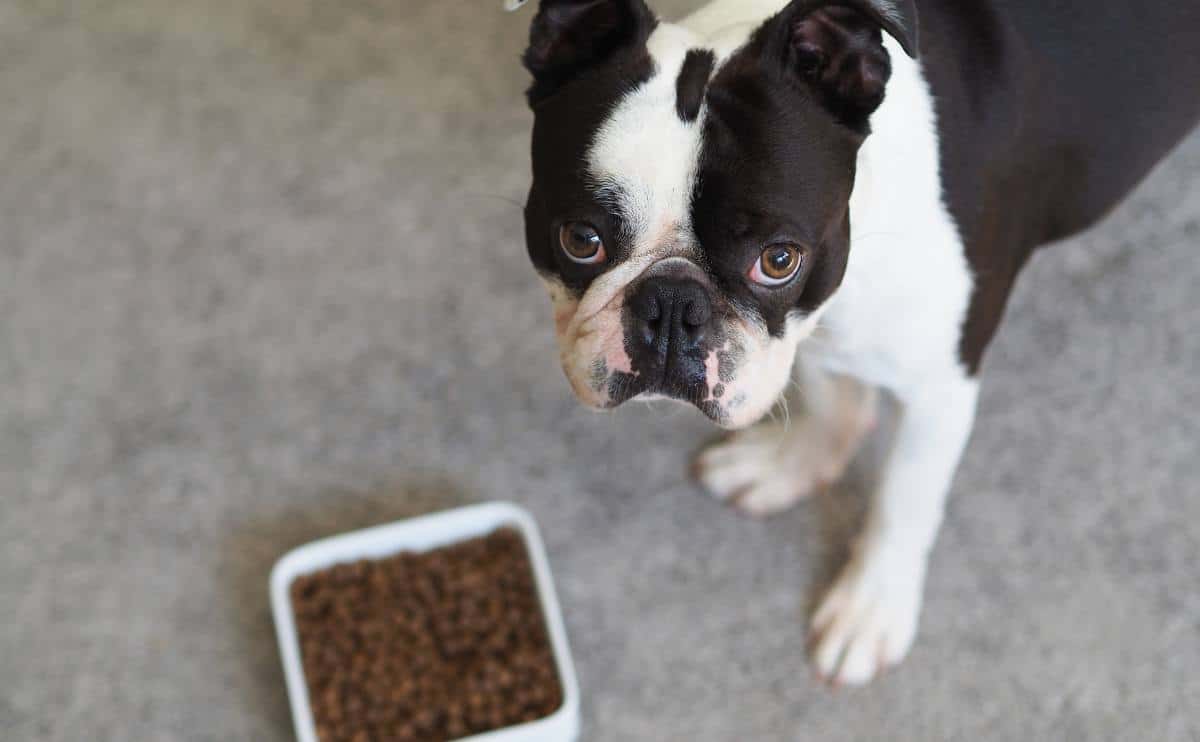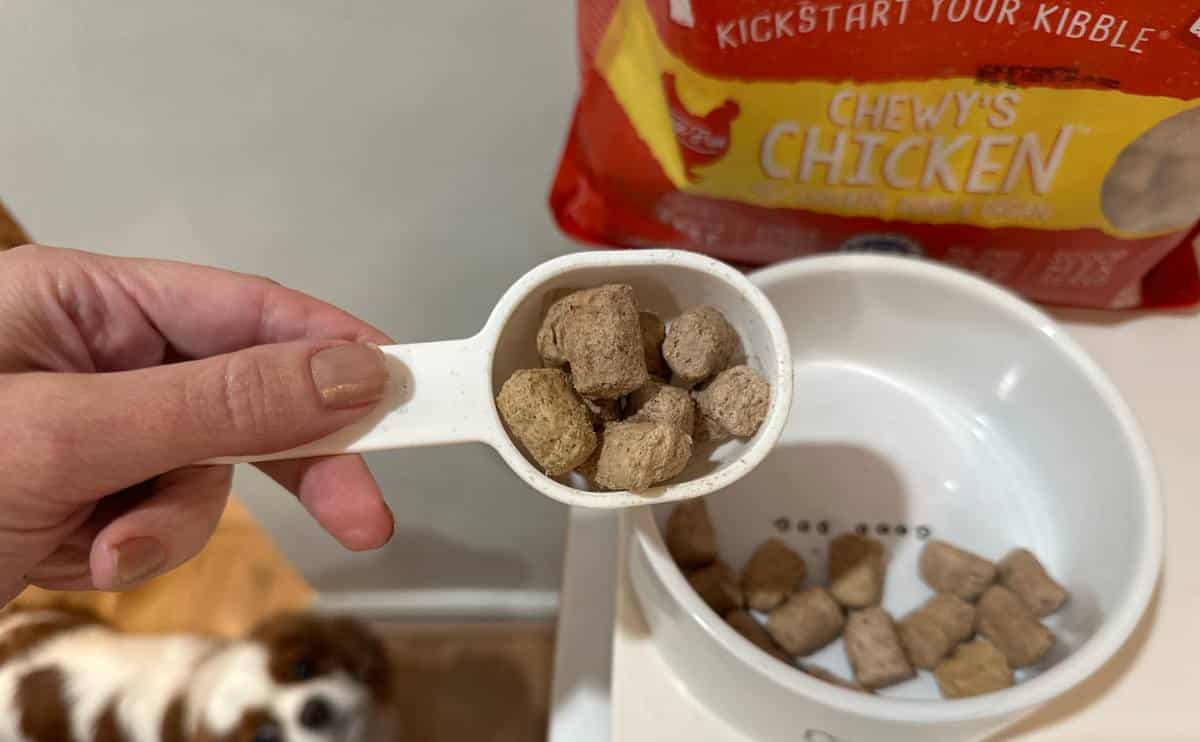When you purchase through links on our site, we may earn a commission. Here’s how it works.

As dog owners, we’re always looking for ways to boost our pup’s diet. Broccoli is a healthy vegetable that many humans eat due to its nutrient content and health benefits. It makes sense for owners to want to add this healthy veggie to their pet’s diet, but can dogs eat broccoli? Is it safe for our pups? As with many other vegetables, broccoli is safe but only in moderation and certain preparations. There’s a little more to it than a simple yes or no when it comes to feeding a dog this green veggie.
- Can Dogs Eat Broccoli?
- Is Broccoli Good For Dogs?
- Is Broccoli Safe For Dogs?
- How To Serve Broccoli To A Dog
- Can Dogs Eat Raw Broccoli?
- Can Dogs Eat Broccoli Stems?
- What Other Vegetables Can Dogs Eat?
- Our Personal Experience With Dogs Eating Broccoli
- Looking For Other Treat Options?
- Wondering What To Put In Your Dog’s Bowl?
Can Dogs Eat Broccoli?
Adult dogs can eat broccoli, but only in small amounts. The stalks, stems, and florets are all edible for canines, but you should only give them as occasional treats. While safe in strict moderation, this green veggie should not be an everyday treat. Treats of any kind should comprise at most 10% of your canine’s daily calorie intake. Additionally, your furry friend should get all the nutrients, vitamins, and dietary balance he needs from his pet food. Vegetables like this can be a tasty and nutritious treat but should not replace their regular, high-quality, balanced dog food.
Is Broccoli Good For Dogs?
Broccoli is a cruciferous vegetable from the cabbage family (Brassica oleracea). It can add nutritional benefit to your pup’s diet when given as a treat in combination with a well-balanced dog food.
Some of the nutritional benefits of broccoli include:
- It contains healthy dietary fiber, which promotes a healthy digestive system and bowel movements.
- Vitamin A works to maintain healthy vision and eye health.
- Vitamin B is a reliable source of folate.
- Vitamin C works as an anti-inflammatory and helps to bolster the immune system. It fights illness and aids in physical healing.
- Vitamin K supports healthy bones and joints.
- Minerals, including chromium potassium, magnesium, and sodium, support the nervous and immune systems. Iron supports heart health.
- Folic acid supports the health of cells, as well as the production of oxygen. Folic acid helps in the production of red blood cells, the elevation of blood oxygen, fat metabolism, and DNA synthesis, as well as supporting healthy growth and development.
- It can aid in weight management. Also, it is beneficial to enhance the gut lining for dogs suffering from leaky gut.
- Nutrients like lutein support heart health. These veggies can help reduce triglycerides and lower cholesterol, help clean the blood, and lower the risk of disease, including cardiac disease.
- Cruciferous vegetables are a healthy source of zinc. Zinc is important to help prevent heart disease, skin concerns, blindness, and gastrointestinal issues.
- Low in sugar and fat and high in plant protein.
- This crucifer works to reduce oxidative stress. Free radicals are unstable molecules that can cause damage to cells, DNA, cell membranes, and proteins. Free radicals lead to cancer, heart disease, chronic disease, brain disorders, and premature aging, among other health concerns. The plant contains compounds like vitamin C and sulforaphane, which decrease inflammation, remove carcinogens, help stop the spread of cancer, and fight free radical damage.
Is Broccoli Safe For Dogs?
Broccoli is safe but only in small servings. Pups can eat it fresh, frozen, cooked, or raw. However, puppies should not eat broccoli. Cruciferous vegetables are hard to digest, and a puppy’s digestive system is not fully developed. So, leave the fresh green vegetables to the adult pups. Canines can also eat broccolini and broccoli rabe, also called rapini. Broccolini is a cross between Brassica oleracea and Chinese broccoli, also called Chinese kale. Rapini, which looks similar, is more closely related to the turnip. It’s also safe for canines in small amounts.
While this crucifer is safe, it can have some adverse side effects. Like other cruciferous vegetables, it can cause pups to have gas. Because it’s so high in fiber, this veggie can cause canines (and humans!) to fart. Along with the fiber, the florets also contain isothiocyanate, which can cause digestive upset. It can range from subtle to severe depending on the amount eaten and how sensitive a pup is.
Gastrointestinal symptoms can include stomach pain, gas and flatulence, diarrhea, and, in some cases, blockages. If your pup seems uncomfortable or shows any of these symptoms after eating crucifers, it’s best to contact your vet for advice. Never feed this or any other veggie to a pup in an amount that is excessive. A little goes a long way.
How To Serve Broccoli To A Dog
When feeding your dog any veggie, prepare it specifically for them. Canines should only eat plain crucifers, with no added seasonings or other ingredients. It’s preferable to serve it to your pup boiled or steamed. This cooking process only breaks down a little of the nutrient value and makes the vegetable soft, pliable, and easy to eat.
Any time you feed a dog a new food for the first time, start with a tiny amount. Try just a bite or two at first. Observe your pup during and after eating. Take note of any odd symptoms directly following or even the next day as the veggies work through the gastrointestinal tract.
Can Dogs Eat Raw Broccoli?
Dogs can eat the raw crucifer if it’s plain. Whether cooked or raw, you should cut it into bite-sized pieces or chop it up into very small amounts and mix it with their kibble. There is some risk of salmonella bacteria from raw vegetables, so you should wash it thoroughly before serving. Do not feed your pup any raw or cooked veggies with butter, cheese, ranch, or any other kind of sauce or dressing.
Can Dogs Eat Broccoli Stems?
The stems are safe, but only if cut into small pieces. The stems and stalks are more fibrous but can become choking hazards if the chunks are too big. The stalks and stems are not toxic but do not taste the best, so they are not a top pick to feed your pup.
What Other Vegetables Can Dogs Eat?
Canines can eat a variety of vegetables and fruits. However, owners should always research first. Though many are healthy snacks for humans, some can be very dangerous for canines. Onion and garlic, for example, are toxic and should not be fed to pets. Learn more about what foods are not safe for dogs. If you’re worried about your pup being overweight or not getting the proper nutrients, discuss these concerns with your veterinarian or a canine nutritionist.
Even though this food is safe for dogs when given in moderation, your pet is sure to encounter unexpected dangers throughout its life. Pet insurance can reduce the financial burden so you can focus on your dog’s health in an emergency.
Our Personal Experience With Dogs Eating Broccoli
My dogs enjoy eating broccoli, and we know it is good for them. However, after one or two small pieces, it is a gaseous disaster in our home! Because of this, we try to keep the portions very small when we give them broccoli to snack on.
–Michelle Schenker, Rescue Dog parent
One of my dogs enjoys eating raw, frozen, and cooked broccoli. She will happily scarf it up. It does make her fart, so this is a very limited snack. My other dog will not touch it in any preparation and will eat around the veggies if broccoli ends up in his bowl.
Looking For Other Treat Options?
Treats can be part of a nutritionally balanced diet but should always be served in small quantities. There is a wide selection available from freeze-dried meat treats, vegan treats, CBD treats, and treats for special needs like calming mood treats and options for pets with diabetes.
If you’re considering supplements for your pet, we also review several of them. Supplements can be beneficial for allergies, joint pain, other ailments. Always discuss adding supplements with your veterinarian, especially if your dog has any special medical considerations.
Wondering What To Put In Your Dog’s Bowl?
Vegetables can be a healthy and flavorful treat but are not enough to sustain a healthy canine. If you’re wondering what to feed your pup, you have plenty of healthy options. Fresh food made from human-grade ingredients like The Farmer’s Dog, Spot & Tango, and Ollie are top picks, and several are available by delivery. If you are considering raw food, We Feed Raw, BARF, and Maev are excellent options.
Tagged With: Food Safety

